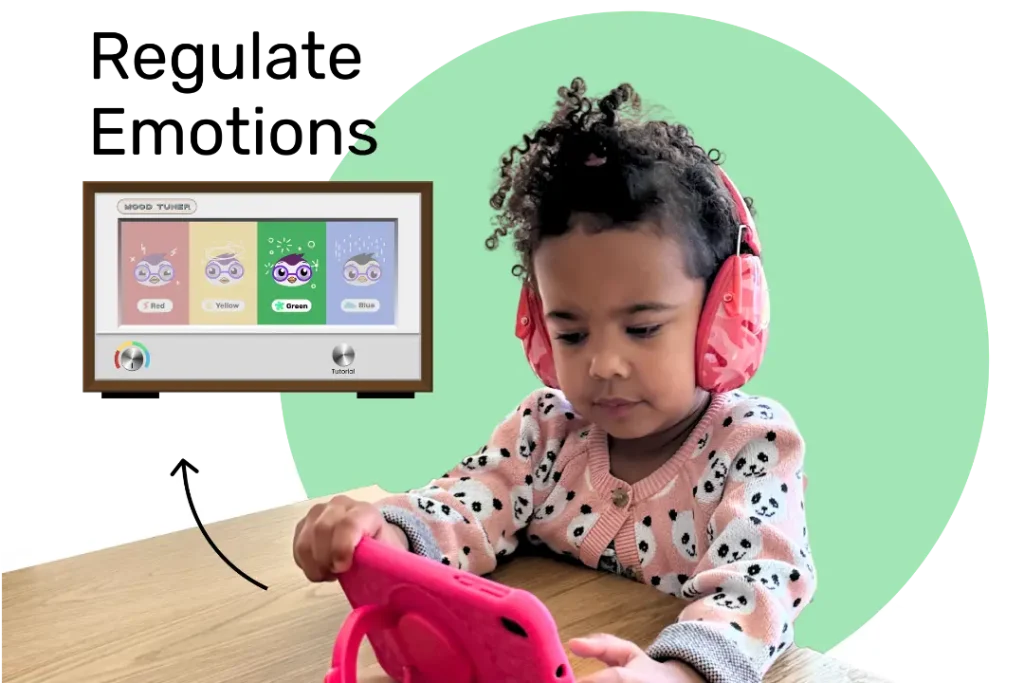Empathy, that heartfelt ability to understand and share the feelings of others, is a powerful skill for any child to possess. But when do children develop empathy? This intriguing process is essential for emotional growth, and it can be especially vital for neurodivergent kids. In this post, we’ll break down the stages of empathy development, explore the factors that influence it, and provide actionable tips to help you nurture empathy in your child.
Table of Contents
Understanding the Stages of Empathy Development
Empathy development is a gradual process that unfolds over time. While every child is different, the following stages provide a general outline of what you can expect:
- 0-2 Years: Babies can sense emotions in others and may even cry when they hear another baby cry. Although not yet empathy, it’s a starting point.
- 2-4 Years: Toddlers begin to display basic empathy by showing concern when someone is upset and offering comfort.
- 4-6 Years: Children start to develop perspective-taking skills, understanding that others have thoughts and feelings different from their own.
- 6-9 Years: Kids can now empathize with others based on shared experiences and begin to consider the needs of others, even when they’re not present.
- 9-12 Years: Preteens can empathize based on abstract ideas, understanding that people can have different opinions and feelings about the same situation.
Keep in mind that these are general guidelines, and the development of empathy may vary for neurodivergent kids or those with thinking and learning differences. Let’s dive deeper into the factors that influence empathy development.

Read More: Child Development Stages
Factors Influencing Empathy Development
Several factors can influence when and how empathy develops in children. Some of these include temperament, parenting style, cultural background, and neurodiversity. Understanding these factors can help you support your child’s empathy development journey more effectively.
| Factor | Description |
|---|---|
| Temperament | Some kids are naturally more sensitive and responsive to others’ emotions, making it easier for them to develop empathy. |
| Parenting Style | A warm, supportive, and emotionally available parenting style can promote empathy development. |
| Cultural Background | Cultural norms and values can shape the way children understand and express empathy. |
| Neurodiversity | Kids with special needs or neurodivergent kids may experience empathy development differently, depending on their unique strengths and challenges. |
How to Nurture Empathy in Your Child
As a parent, you play a crucial role in fostering empathy in your child. Here are some strategies to help you on this journey:

Read More: 5 Books About Empathy for Kids
1. Model Empathy
Children learn by observing their parents. Show empathy towards others, and your child will be more likely to follow suit. Demonstrating understanding and compassion in your daily interactions can lay a strong foundation for your child’s empathy development.
2. Validate Their Emotions
When your child is upset, acknowledge their feelings and help them understand that it’s okay to feel that way. This helps them develop emotional awareness, a key component of empathy. By validating their emotions, you’re teaching your child the importance of recognizing and respecting the feelings of others.
3. Encourage Perspective-Taking
Prompt your child to consider how others might feel in different situations. For example, you might ask, “How do you think your friend felt when you took their toy?” By encouraging perspective-taking, you’re helping your child develop the ability to put themselves in someone else’s shoes, a critical aspect of empathy.
Read More: Empathy Mapping in Kids
4. Discuss Feelings and Emotions
Regularly talk about emotions and feelings with your child, using examples from everyday life or stories. This helps them develop emotional vocabulary and understanding. Conversations about emotions can lead to a deeper comprehension of how different situations affect people and how empathy can play a role in supporting others.
5. Be Patient and Supportive
Remember that empathy development is a process that takes time. Be patient and provide ongoing support to help your child grow in this area. Recognize and celebrate their progress, and always be there for them when they need guidance or encouragement.

Read more: Why is Empathy Important in Kids?
Empathy Development in Neurodivergent Kids
For kids with thinking and learning differences, empathy development may present unique challenges. It’s essential to recognize and support their strengths while addressing areas that might need extra attention. Here are some tips for nurturing empathy in neurodivergent kids:
- Utilize Visual Aids: Social stories and visual cues can help neurodivergent kiddos understand emotions and social situations better.
- Practice Social Skills: Role-playing and practicing social skills can be a fun and effective way to help your child develop empathy.
- Work with Professionals: Collaborate with therapists, teachers, and other professionals who understand your child’s unique needs to develop strategies for fostering empathy.
Supporting empathy development in neurodivergent kids may require extra patience and understanding, but with the right tools and approach, every child can thrive.
Goally | Kid’s Tablet for Building Emotional Regulation Skills
Is your child struggling with understanding and managing their emotions? Goally teaches emotional regulation skills in a fun and interactive way!

The Mood Tuner app encourages kids to look inwards and identify their feelings, helping them understand what’s going on inside. Once they’ve recognized their emotions, they can choose from a variety of exercises designed to help them self-regulate and find their balance.
Final Thoughts on Empathy Development
In summary, empathy is a crucial skill that can significantly impact a child’s emotional and social growth. While the timeline for when do children develop empathy varies, understanding the stages, factors influencing development, and strategies to nurture empathy can help you support your child on their journey. Remember, empathy development in neurodivergent kids may look different, but with patience, understanding, and the right tools, every child can flourish.
FAQs About When Do Children Develop Empathy?
At what age do children begin to develop empathy? Children typically start to develop empathy around the age of 2 or 3.
How can parents encourage the development of empathy in their children? Parents can encourage empathy by modeling compassionate behavior and discussing others' feelings.
What are some effective learning tools for promoting empathy in children? Visual stories, role-playing games, and cooperative activities effectively promote empathy in children.
Are there any specific apps that can help children regulate emotions? Yes, apps like "Calm Counter" and "Breathr" are designed to assist children with emotional regulation.
How can parents use rewards to reinforce empathetic behavior in children? Parents can use a reward system by providing positive reinforcement, such as praise or small incentives when children display empathetic behavior.
This post was originally published on 05/14/2023. It was updated on 04/17/2024.
Emily is a seasoned blog writer for Goally, leveraging her extensive background in child psychology and special education to provide valuable insights and resources for parents. Her commitment to understanding and addressing the unique needs of these children, combined with her expertise in educational strategies, makes her a credible and empathetic voice for families.






